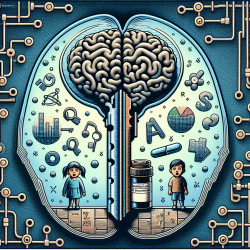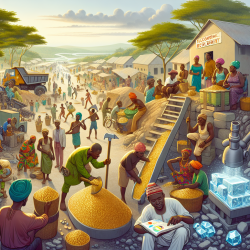Understanding Large-Group Identity
The research underscores the importance of large-group identity in shaping individual experiences and behaviors. Sigmund Freud's idea of "narcissism of minor differences" is revisited, emphasizing how small distinctions between groups can lead to significant prejudice and conflict. Practitioners should be aware of these dynamics when working with children from diverse backgrounds.Impact of Trauma on Children
Volkan's research categorizes traumas into various types, focusing on those inflicted by others. These traumas can lead to long-lasting psychological effects, especially when tied to large-group identities. For children, this means that their sense of self and belonging can be profoundly affected by their group's collective experiences of trauma.Implementing Research Findings
To improve therapeutic outcomes, practitioners can implement the following strategies based on the research:- Awareness of Large-Group Dynamics: Understand the child's large-group identity and how it affects their behavior and emotional state.
- Trauma-Informed Care: Incorporate trauma-informed practices that recognize the impact of collective trauma on individual children.
- Promote Resilience: Use interventions that build resilience and coping mechanisms, helping children to navigate their identities and experiences.
- Family and Community Involvement: Engage with the child's family and community to provide a supportive environment that acknowledges and addresses collective trauma.
Encouraging Further Research
The article provides a comprehensive framework for understanding the interplay between trauma, prejudice, and large-group identity. Practitioners are encouraged to delve deeper into this research to continually refine their approaches and better support the children they serve.To read the original research paper, please follow this link: TRAUMA, PREJUDICE, LARGE-GROUP IDENTITY AND PSYCHOANALYSIS










